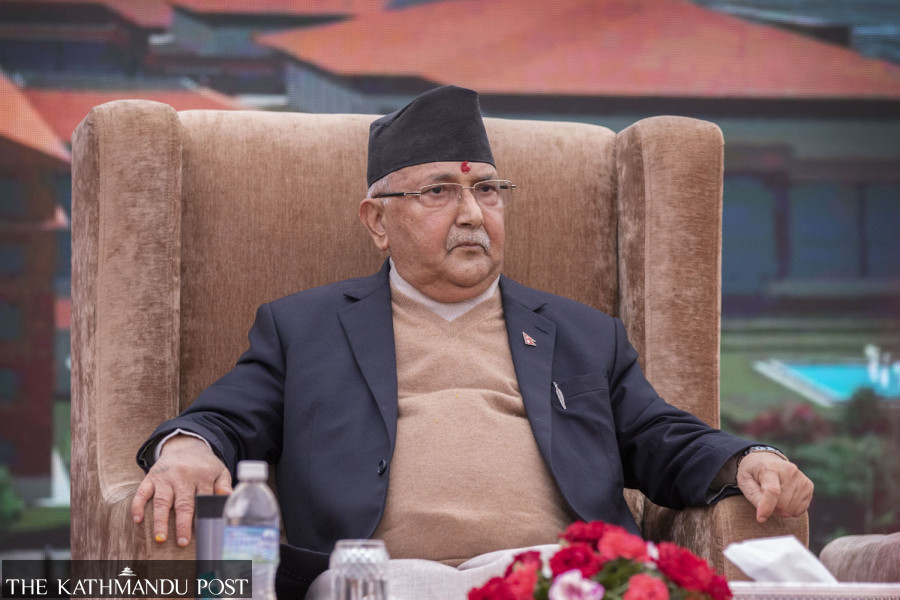Editorial
Don't even think about it
Political adventurism to scrap secularism and federalism will backfire.
It is no secret that Prime Minister KP Sharma Oli is sceptical about federalism and secularism. The cat is out of the bag yet again, this time through what could be termed a formal attempt at relinquishing the two fundamental tenets of the 2015 Constitution of Nepal. On Saturday, during the CPN-UML’s Central Committee meeting, youth leader Mahesh Basnet proposed reviewing the constitutional provisions of federalism and secularism, claiming that the party chair—Prime Minister Oli—had agreed to hold deliberations on the proposal.
That such a proposal was made by Basnet, who is considered to be Oli’s handyman, should be of concern. This is not to undermine the agency of a youth leader elected by the people; but there is no reason not to believe that his proposal could be a way of testing the waters: If the public reacts disapprovingly, Basnet’s statements could be passed off as just another personal opinion of a youth leader who is controversy’s favourite child, and who does not represent the party; if the public shows some interest in Basnet’s statements, it could be taken up further and mainstreamed in the party’s ideological standpoint in the run up to the upcoming elections.
No matter how abominable it sounds, Basnet’s proposal should have been expected. After all, Oli’s favouritism of political Hinduism is also pretty well known, as is evident in his attempts to project a fictional Ayodhya in Chitwan and his enthusiasm to install a jalhari in Pashupati, among others. No one is asking Oli to cage his religious beliefs in the private domain altogether; but he is expected, as the head of the executive, to keep away from practices that blatantly display his bias towards one particular religion and stick to the principles of secularism, as envisaged by the constitution.
Secularism is based on the premise that people belonging to various religions, as well as those who do not commit to any religion, can co-exist without any hierarchy. Rather than push religion out of public life altogether, all faiths are expected to be treated as equal while maintaining what political thinker Rajeev Bhargava calls a ‘principled distance’. That should be no problem to anyone who is committed to the fundamental tenets of democracy.
When Oli came to power through the first federal elections held under the new constitution, he was expected to honour the fundamental tenets of the supreme document. Federalism was adopted in Nepal at a historical juncture when people belonging to various parts of the country started to become vocal about their exclusion by a centralist state. Despite the various challenges that it faces, including the huge maintenance cost, federalism has played a central role in the devolution of power, providing people with the authority to address their governance and development concerns locally or provincially. Oli’s abhorrence of federalism, though, has not waned a bit over the years.
Oli is in no position to tamper with the constitution at the moment, given his minority position in the political sphere; but it won’t be a surprise if he campaigns fervently for scrapping federalism and secularism in the upcoming elections as a last resort to return to power. It will be nothing short of an attempt to undo the gains made in the past decade and a half towards turning Nepal into a more equitable, just and tolerant democracy. Oli and his comrades would do well to understand that their political adventurism to scrap secularism and federalism will backfire, and take away whatever little remains of their political legacy.




 13.12°C Kathmandu
13.12°C Kathmandu














